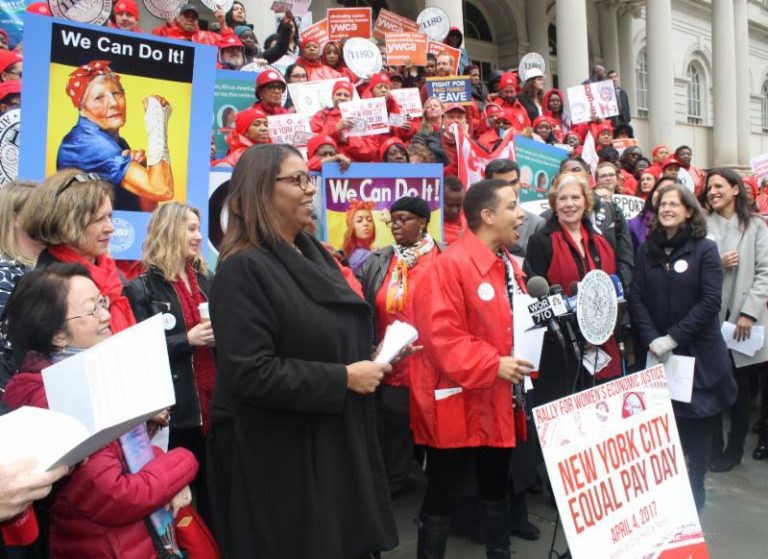
New York has made some progress towards furthering gender equality and women's rights, beginning with the 2015 passage of the New York Equal Pay Bill and more recently, with the Paid Family Leave Bill, in addition to other legislation that strives to combat sexual assault and domestic violence.
However, for the state's population of black women, the gap is still too wide-- 36 percent, and for Latinas it is 46 percent. Even worse, findings from a policy report on the gender wage gap by Public Advocate Letitia James reveal that in New York City, the gap is even greater for Hispanic, Black, and Asian women who experience a 54 percent, 45 percent, and 37 percent wage gap compared to white men, respectively.
In addition, women employed in New York City's government experience a wage gap three times larger than women working in the private sector. All totaled, the wage gap reduces revenue for NYC by approximately $5.8 billion and for the state by an estimated $20 billion.
On Tuesday, in honor of the 11th annual NYC Equal Pay Day PowHerNY, a statewide coalition committed to securing economic equality for all New York women, joined forces with Public Advocate James, New York City Council Women's Caucus co-chairs Laurie Cumbo and Helen Rosenthal, union members, and activists to rally on the steps of City Hall to continue pushing for immediate legislative action that effectively will close the wage and opportunity gap.
Legislation sponsored by Public Advocate James, Intro 1253, prohibiting employers from inquiring about or relying on a prospective employee's salary history, will be passed today in the City Council. Additionally, Councilmembers Cumbo and Rosenthal will introduce on the floor Intro 1536, requiring that gender wage data for the public sector and city contractors is made available and transparent.
"Asking questions about salary history during the hiring process perpetuates a cycle of wage discrimination, which is why I introduced legislation to ban this practice," said James. "On Equal Pay Day, we recognize a huge step towards closing the pay gap as the bill is slated for an upcoming vote. We must continue working to promote policies and legislation that ensure economic equity and fairness for women and all New Yorkers."
Participants at the rally wore red because women are still "in the red," recognizing the urgency to push for economic justice through stronger laws, fairer wages, better jobs, and more inclusive workplaces.
"New York is in the middle of a game-changing moment. Never before have we seen such strides in closing the wage and opportunity gap," said Cumbo.
"However, more must be done to increase transparency when it comes to the reporting of pay and employment data within city agencies. I am excited and proud to say that I will be introducing groundbreaking legislation at tomorrow's stated meeting that will make gender wage data for the public sector and city contractors available and transparent. For the first time, we will have access to data that will show the discriminatory pattern of wage suppression and subjective promotions based on sex, gender, and race; all issues that female civil workers currently battle every day.
On its current course, according to the report, New York state may not close the wage gap until 2049. For women of color, the rate of change is even worse. Black women will wait until 2124 and Hispanic women will have to wait until 2248 to see equal pay.
"All women deserve equal pay for equal work. I will not rest until New York City pays them what they're worth," Cumbo said. "Show New York City Women the Money!"

.png;w=120;h=114;mode=crop)

